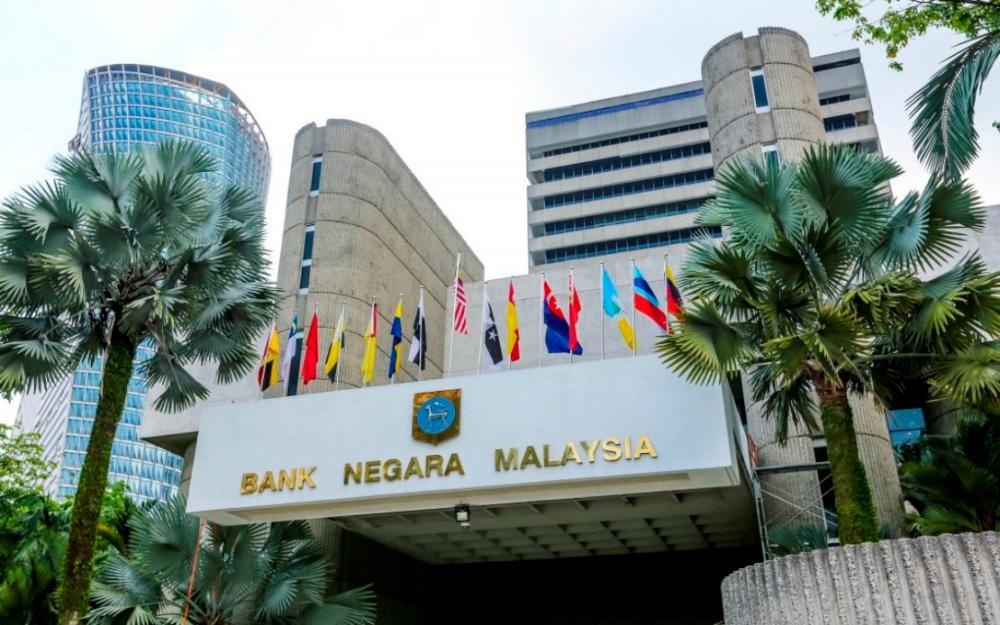PETALING JAYA: Bank Negara Malaysia (BNM) aims to prioritise its Diversity, Equity and Inclusion (DEI) initiatives in its leadership changes, said Financial Development and Innovation Department director Lau Chin Ching.
She said the central bank has 50% women in its workforce and top leaders, and the racial diversity reflects the population.
“That’s just us being lucky ... maybe it was a little bit of a seed that’s been planted over time, but if we want this to continue, the challenge will be that it has to transcend different generations of leaders,“ Lau said when speaking at a panel session, titled Financial leadership in the 21st Century at the LeadWomen APAC DEI Summit 2024 recently.
Lau said that to maintain this progress, institutional frameworks must be established. “For example, we have established our Ethics and Integrity Office and launched our Cultural Beliefs Journey. We want to achieve these long-term goals, not just short-term fixes based on current preferences or leadership.”
She advocated for a proactive and structured approach to DEI even if the organisation appears balanced.
“It’s important to institutionalise a lot of these arrangements as well. In Bank Negara itself ... for 20 years ... when people ask me to talk about DEI, I ask, ‘What, is there a problem? Because I’ve been living in an environment where we don’t talk about the need to balance because we’re already balanced.”
Lau said achieving clarity regarding policies and intent related to DEI is a challenge. “You can’t write down everything in a policy, especially HR policy. There are many consequences – real legal implications and perceptions.”
She added, “If you include something in a policy that gets shared on social media, can you imagine the discussion that could arise? You must exercise discretion about what you can say and what should be documented.”
Despite this, Lau acknowledged that the workforce seeks clarity, leading to internal conversations about pay and remuneration.
“We want to clarify our pay scale, but sometimes HR advises against it because we are conservative,“ she said. “The challenge is that times change, preferences change, and the expectations on sharing the availability of information also change, and it’s something we have to keep up with.”
BNM assistant governor Suhaimi Ali has also shared some of BNM’s efforts in advocating for diversity, equity, and inclusion and offered several suggestions on how to drive the DEI agenda.
All these are aligned with the board’s oversight responsibility in promoting sustainable growth and financial soundness of financial institutions and the board’s duty to consider the long-term implications of its decisions on all stakeholders, including the public.
Suhaimi said the BNM board has set a “clear tone from the top” for the central bank to develop diverse, equitable and inclusive work practices, culture and environment.
“This has translated into the bank’s core aim, one of which is to ensure that we have a strong culture and an engaged workforce that keeps us effective as an organisation in delivering our mandates,“ he said in his keynote at FIDE Forum 2nd Distinguished Board Leadership Series in November last year.
Suhaimi said having four generations collaborate in an inclusive environment fosters a rich exchange of perspectives that helps the bank deal with complex issues in an evolving global landscape. “As an example of DEI action, encouraging women’s participation in the labour force has been a long-standing priority of the bank.”
He said BNM invested in building a childcare facility near its head office in 2010 so that mothers and parents can have peace of mind knowing that their children are well cared for while they work. “Flexible working arrangement is also in place and further enhanced by a policy allowing staff to work remotely twice a week.”
These flexibilities help a working parent design a schedule or arrangement that best meets their situation. he said. “The bank also ensures that its maternity, paternity and medical benefits remain attractive, comparable to leading industry practices.”
Suhaimi said that, in terms of gender diversity, women account for close to 50% of the bank’s total employees – 44% of senior officers (deputy directors and above) are women. 48% of heads of departments are women, of whom 62% are heads of departments in core mandated areas of monetary and financial stability.
“Women executives represent 57% of professionals in those core policy departments.”
In terms of pay scale, Suhaimi said men and women performing comparable jobs are paid equitably based on merit.
“Recruitment and promotion considerations are performance-driven but underscored by extensive and continuing support for career development at every level of one’s career, from support staff to senior leaders in the bank.”
Additionally, Suhaimi said, training and exposure are given to everyone through formal and informal learning. This includes involvement in cross-sectoral or bank-wide projects, secondment to leading organisations and the opportunity to undergo structured learning programmes.
He added that DEI strategies which remove barriers to effective participation in the workplace and provide ample opportunities for staff development in both technical and leadership areas would give everyone a fair chance for career progression.
“I believe that an open and inclusive environment is a fundamental prerequisite of a performance-based organisation to ensure the best candidates are appointed for each available position, without leaving anyone behind,“ he said.
Bank Negara subscribes to a set of values, principles, and standards for all staff members when performing their roles and duties, Suhaimi said. “It outlines the expectations for staff regarding respect for diversity, fostering a harmonious workplace and treating others with due respect.”
In meetings, the assistant governor said, staff are encouraged to be courageous, speak out constructively, and participate in healthy debates. “This sets a foundation for a culture of respect, inclusion and speaking up, where harassment, bullying and bias are not tolerated.”









